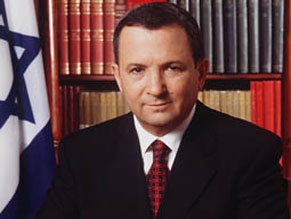|
World Jewish News

Ehud Barak (photo by ruthbar.co.il)
|
Barak heads to U.S. to discuss Iran, Mideast peace talks
23.02.2010, Israel and the World Defense Minister Ehud Barak leaves for the United States Tuesday to discuss Iran's nuclear program and the possible reviving of talks with the Palestinians. Barak decided to make the trip despite rising security tensions, especially on the northern border.
Barak is to speak with U.S. Defense Secretary Robert Gates and senior Pentagon officials, followed by a meeting in New York with UN Secretary General Ban Ki-moon.
Along with efforts to renew talks with the Palestinians and discussions with the United Nations over the Goldstone report, Barak will devote much of his visit to the Iranian threat and its implications for Israel's relations with its closest neighbors.
Sources say Jerusalem expects the Obama administration to lead the way next month toward harsh international sanctions on Iran to stop its nuclear program.
Israel is worried that its northern border could flare up if tensions with Tehran rise; the Islamic Republic has close links with Syria and Lebanon's Hezbollah. A few weeks ago, Gates warned in a lecture in the United States that Tehran could spark a conflict between Hezbollah and Israel if sanctions are placed on its nuclear program.
Last week Iranian President Mahmoud Ahmadinejad warned in a speech that Israel wants to attack Syria or Hezbollah this spring or summer. He also said Iran would stand by Syria and Lebanon if they were attacked.
Prime Minister Benjamin Netanyahu said Ahmadinejad's accusations were groundless. Israel has recently conveyed messages to Syria to clarify that it has no intention to attack it. Netanyahu Monday called for an immediate embargo on Iran's energy sector, saying the UN Security Council should be sidestepped if it cannot agree on the move.
Iran's uranium enrichment, in defiance of several rounds of Security Council sanctions, has spurred world powers to consider tougher diplomatic measures, against the backdrop of threatened military action by Israel as a last resort.
Netanyahu told foreign Jewish leaders that if the world "is serious about stopping Iran, then what it needs to do is not watered-down sanctions, moderate sanctions ... but effective, biting sanctions that curtail the import and export of oil into Iran.
"This is what is required now. It may not do the job, but nothing else will, and at least we will have known that it was tried. And if this cannot pass in the Security Council, then it should be done outside the Security Council, but immediately."
Many Western diplomats believe that China, along with fellow veto-wielder Russia, would oppose sanctions targeting Iran's energy sector. Proposed sanctions for now focus on Iranian government assets like the Revolutionary Guards.
Iran, the world's fifth-largest oil exporter, says its uranium enrichment is for peaceful energy needs. Netanyahu made no reference in his speech to the possibility that Israel would try to attack Iran's nuclear sites.
Also Monday, a nuclear energy official said Iran has earmarked potential sites for new nuclear enrichment plants, and construction of two of them could begin this year.
"We have earmarked close to 20 sites and have passed the report on those to the president; however, these sites are only potential," Ali Akbar Salehi, head of the Atomic Energy Organization, was quoted as saying by news agency ISNA.
Haaretz.com
|
|
